

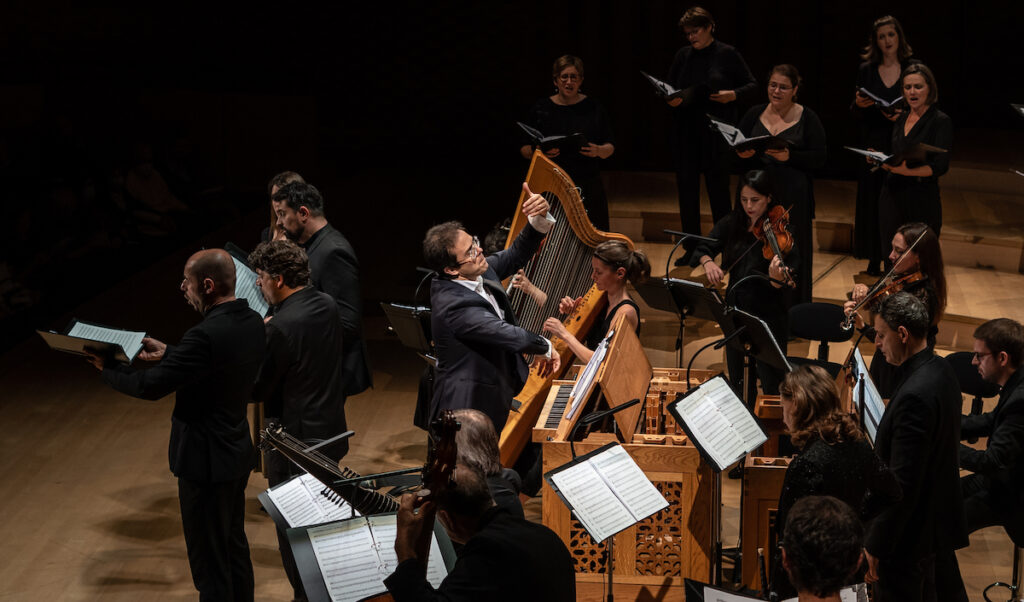
With each piece, the music seizes us and transports us, stupefying us with its cries and silences. These Roman polyphonic pieces are full of treasures. At times, a majestic fugue unfolds, while at other times, the quartet of soloists introduces a more intimate atmosphere. Giorgi’s three motets are simply splendid and his Ave Mariais pure and moving.”
Marc Dumont for Première Loge
This collaboration between Cappella Mediterranea and Laurence Equilbey’s choir, Accentus, presents us with a programme that ranges from Allegri’s famous Miserere – a masterpiece of the Sistine Chapel that was jealously guarded for centuries – to the poignantly chromatic motets of Alessandro Scarlatti. It also give us the chance to discover a little-known mass by Giovanni Giorgi, a composer who was choirmaster at Saint-Jean de Latran before ending his career at the court of Lisbon.
“These 17th-century compositions rivaled one another in ingenuity and multiplied the processes of spatialisation, gradually emancipating themselves from their religious origins and ultimately turning them to their advantage.” – Philippe Ramin for Bachtrack
Alessandro Scarlatti
Plange quasi virgo
Ecce vidimus eum
Gregorio Allegri
Miserere
Luigi Rossi
Piangete occhi piangete
Giovanni Giorgi
Motet
Mass in F major
Julie Roset, soprano
Paulin Bündgen, countertenor
Valerio Contaldo, tenor
Matteo Bellotto, bass
Accentus
Cappella Mediterranea
Leonardo García Alarcón conductor
“While the melodies are very simply constructed, they are surrounded by great harmonic richness. Nevertheless, the result never comes across as unnatural or saturated. For the Holy Week liturgical texts, Giorgi continued to employ the features of Renaissance madrigals, including chromaticism, abrupt melodic leaps and passages where the bars become longer, creating a timeless effect that is virtually absent from the music of his contemporaries. His Offertoires romains are a virtuosic work of counterpoint, containing three centuries of European polyphonic technique.”
Leonardo García Alarcón
“In the 17th centuy, Roman sacred music was varied and dynamic. While the accompanied monody was prominent (especially with the invention of the oratorio), the polyphonic tradition was never abandoned. When Abbé André Maugars visited Rome in the late 1630s, he was struck by these divergent musical practices. In his famous Response faite à un curieux sur le sentiment de la musique d’Italie (1639), he recounts how he was amazed by both the oratorios and the great polychoral compositions. As Maugars observes, Roman composers did not hesitate to multiply choirs, going as far as to bring six or seven choirs together and unite singers and instrumentalists in typically Baroque flamboyant style.”
Jérôme Lejeune
“Under Leonardo García Alarcón’s warm and assertive baton, Cappella Mediterrana enchants the audience and brings to life powerful religious music that is far removed from our reality today. The resounding success of this evening shows that the gap is not insurmountable and that beauty is present in all eras.”
José Pons for Olyrix
See full article
“No matter how numerous, diverse and original his concerts are, Leonardo García Alarcón always remains present, directing his ensemble with incredible vitality and sharpness. He supports his instrumentalists and accompanies each musical phrase. He conducts with broad, sensual gestures and seems to dance with the melodic lines. His concerts are as breathtaking as ever. It’s a pleasure to hear the conductor introduce the programme himself before the music begins.
These Splendours of Roman Polyphony were no exception. The sparsely packed auditorium was barely half full, but Alarcón and his artists had us on the edge of our seats from the very first bars. The Accentus choir was inspired, developing a strength and fervour that amplify the works in this programme – all the more so since Alarcón expanded the acoustic potential of the venue by varying the position of the choir.”
Marc Dumont for Première Loge
See full article
“The works chosen by Alarcón feature the musical traditions of the Sistine and Giulia Chapels. A special place is given to Giovanni Giorgi (a pupil of Antonio Lotti in Venice and choirmaster in Rome and then Lisbon) and Alessandro Scarlatti, whose unsettling harmonies enhance the expressiveness of the words.”
Philippe Ramin for Backtrack
See full article
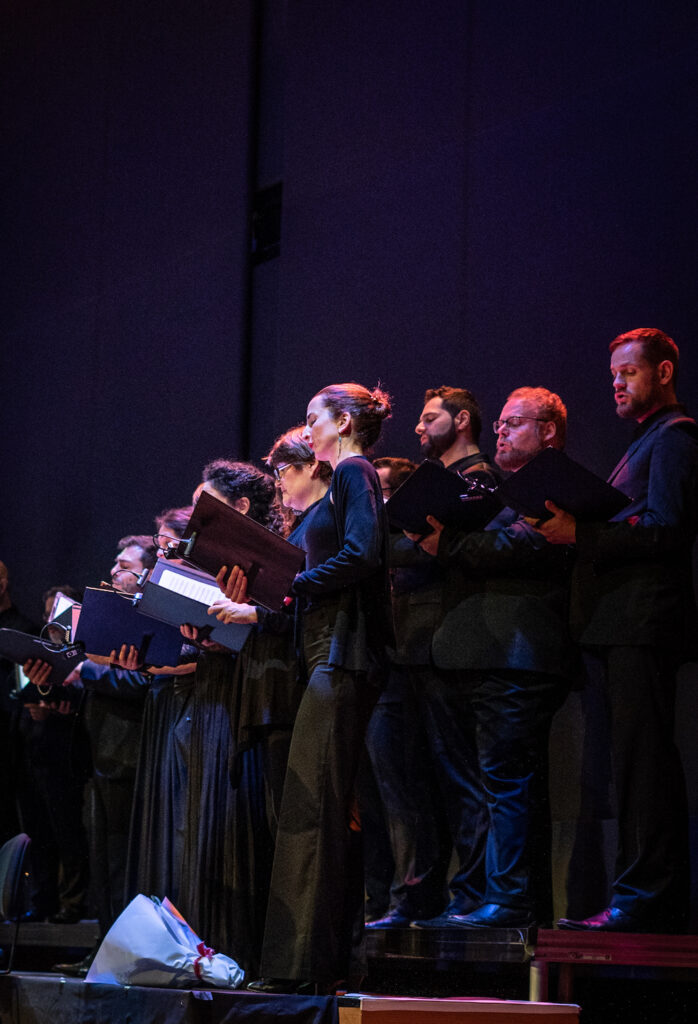
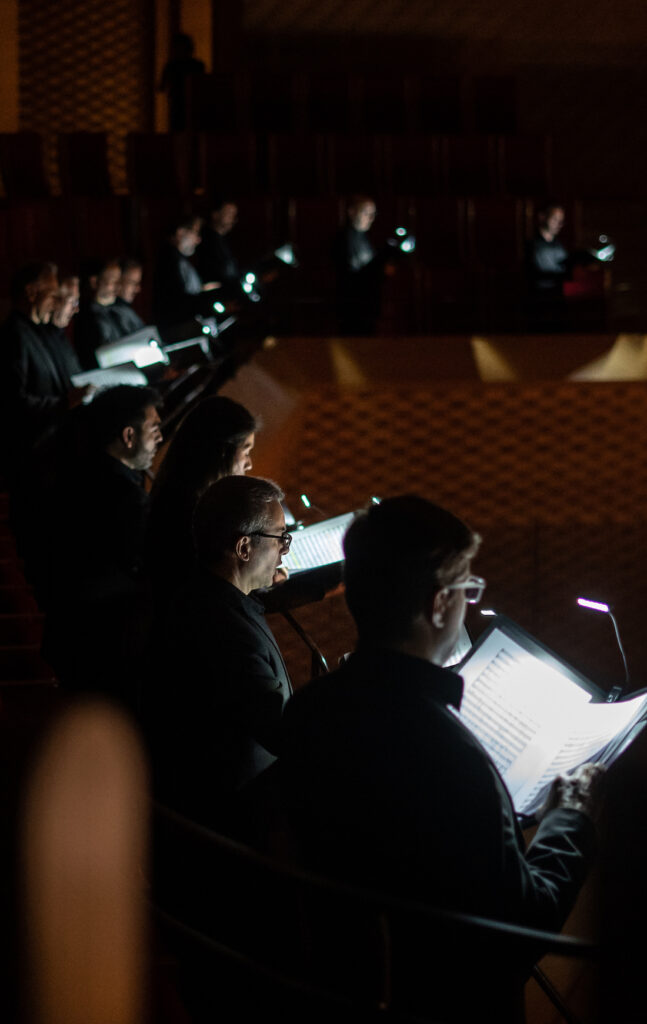
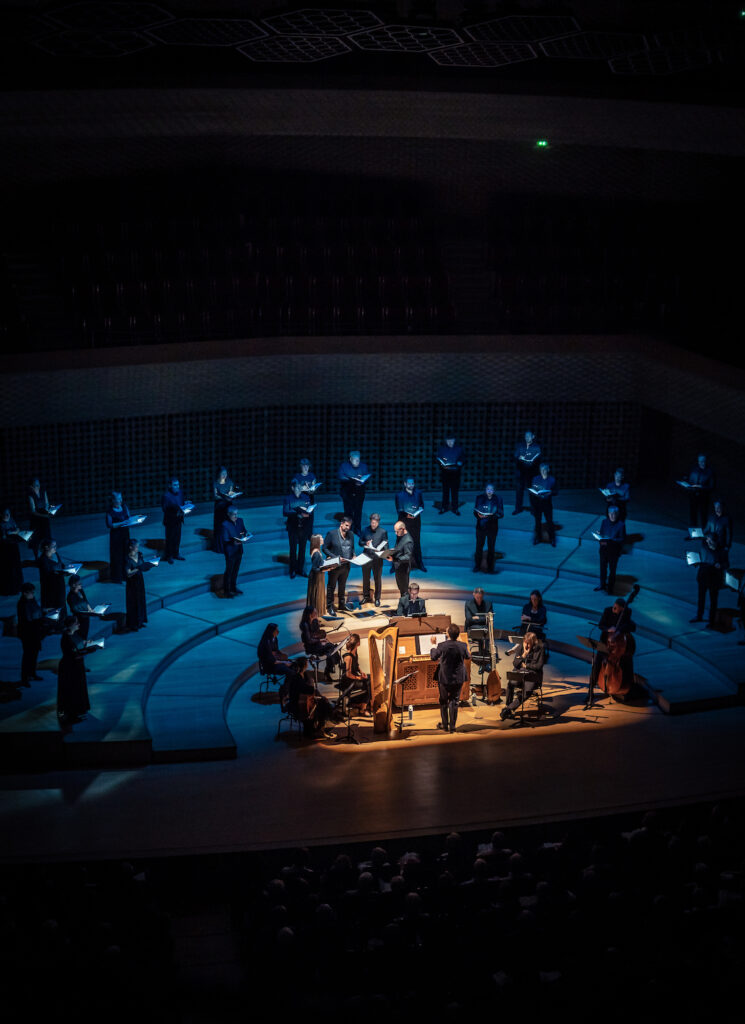
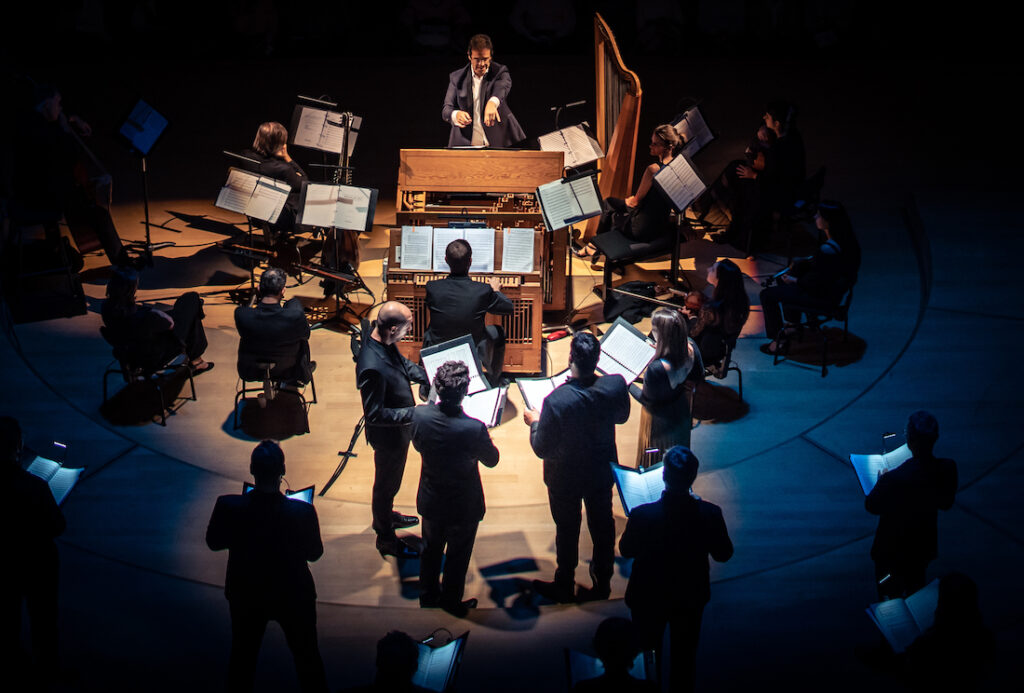



20h00
Chapelle Corneille
Rouen, France
20h00
Louvre - Auditorium Michel Laclotte
Paris, France
19h30
La Seine Musicale
Boulogne, France
20h00
Concert Virtuel - Salle des concerts - Philharmonie de Paris
Paris, France